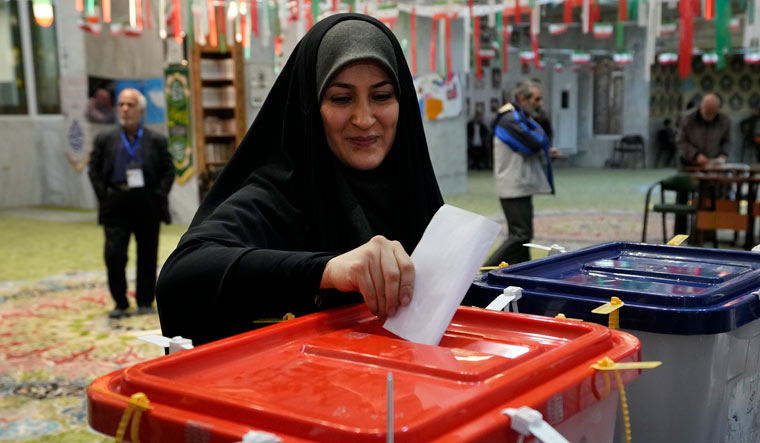After the death of Mahsa Amini in police custody, Iran on Friday held its first parliamentary election. Amid boycott calls, a low voter turnout was expected for the polls.
Iranian officials and even Supreme Leader Ayatollah Ali Khamenei urged the public to cast ballots.
Khamenei has called voting a religious duty. "Today the eyes of Iran's friends and ill-wishers are on the results...Make friends happy and disappoint enemies," he said.
President Ebrahim Raisi, also echoed the call and urged the public to make “a glorious day” for the Iranian nation.
Among those who called for a boycott includes Narges Mohammadi, the winner of the 2023 Nobel Peace Prize. She called the elections a "sham".
"The Islamic Republic, with its ruthless and brutal suppression, the killing of young people on the streets, the executions and the imprisonment and torture of men and women, deserves national sanctions and global disgrace,” Mohammadi said in a statement.
Reform Front, a coalition of parties said it would not take part in "meaningless, non-competitive and ineffective elections."
"I'm not going to vote, because my experience from the previous results was not good...The biggest problem is people’s lack of trust in the effectiveness of parliament," a Tehran resident was quoted by Al Jazeera.
In recent times, Iran has recorded its lowest of 42-per cent voter turnout in February 2020 election.
About 15,000 candidates are contesting for a seat in the 290-member parliament--the Islamic Consultative Assembly.
Parliament terms run for four years, and five seats are reserved for Iran's religious minorities.
The intensified protests across Iran over the death of 22-year-old Amini, has hurt the nation badly. Over 500 people were killed and around 22,000 were detained in connection with the nationwide protests.
The parliament has focused on various issues surrounding Iran's mandatory head covering or hijab rules. The boycott calls has also put the government under immense pressure since the 1979 Islamic Revolution.
The state-owned polling centre ISPA, based on a survey of 5,121 voting-age people, predicted a turnout of 23.5 per cent in the capital, Tehran, and 38.5 per cent nationally.
The voting age population is estimated at about 61 million. Initial election results are expected as early as Saturday.


